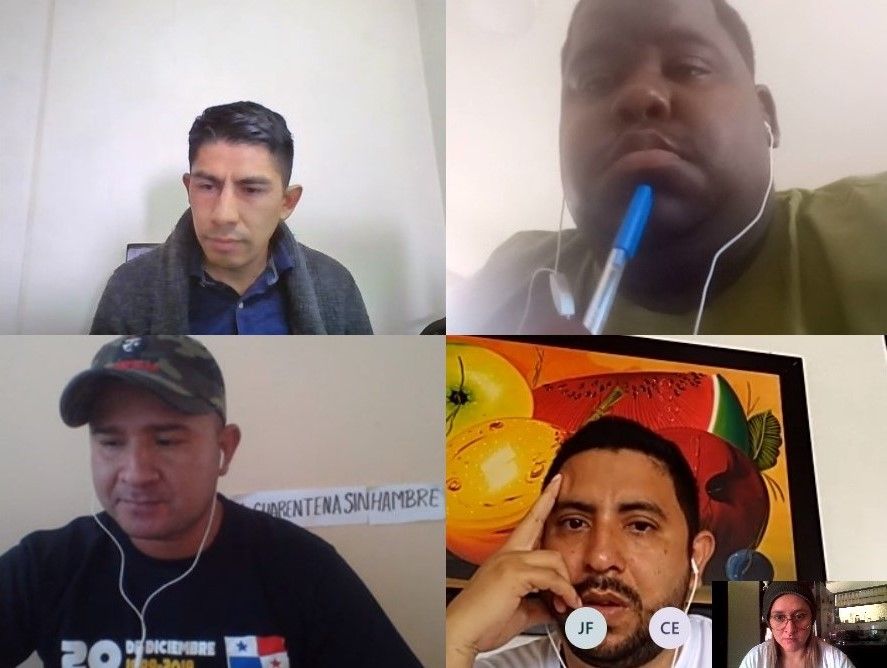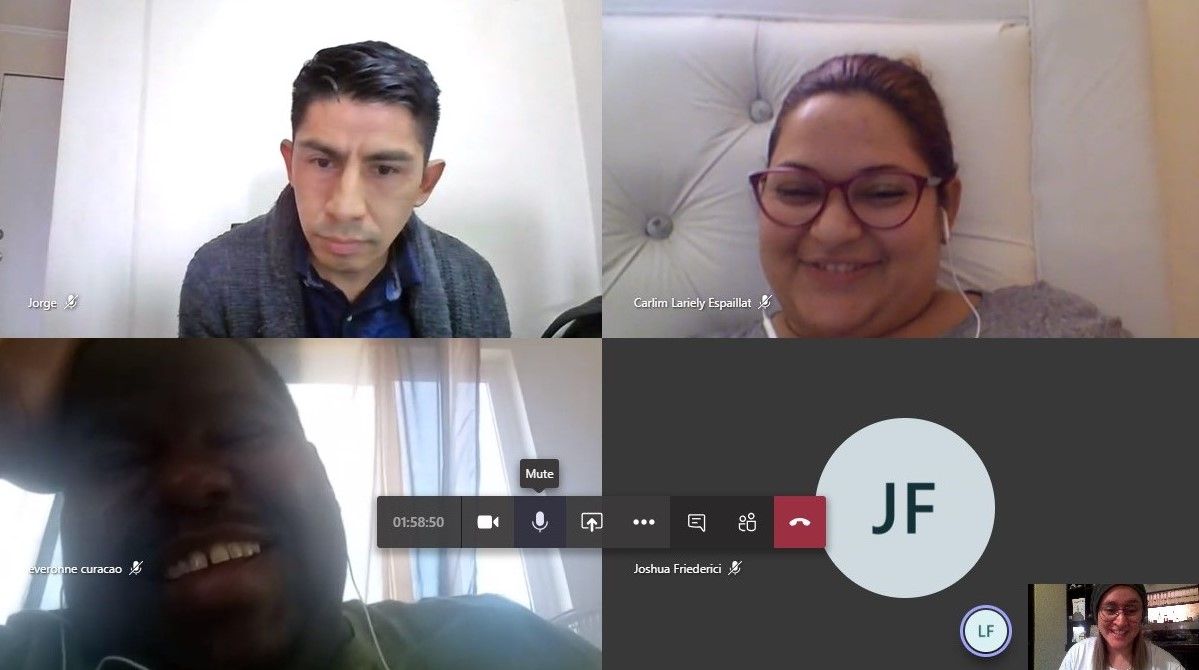 On 24 April, a group of young trade union leaders from BWI-affiliated unions in Latin America and the Caribbean (LAC) held a virtual meeting to discuss the effects of COVID-19 in their countries. The young union leaders from Panama, Chile, the Dominican Republic, Curaçao and Colombia shared the different measures implemented by their governments against COVID-19 and how these are affecting the jobs and incomes of workers in the construction, building materials and wood industries.
On 24 April, a group of young trade union leaders from BWI-affiliated unions in Latin America and the Caribbean (LAC) held a virtual meeting to discuss the effects of COVID-19 in their countries. The young union leaders from Panama, Chile, the Dominican Republic, Curaçao and Colombia shared the different measures implemented by their governments against COVID-19 and how these are affecting the jobs and incomes of workers in the construction, building materials and wood industries.
“Our federation is made up of many young leaders who, together with the rest of our members, negotiated improvements in workplace health and safety, such as sanitary tunnels at construction project entrances, thermal scanners to check workers’ temperature and personal hygiene kits. We are also calling for a preventive lockdown of construction projects as the number of COVID cases in the country is increasing at an alarming rate,” FETRACOMA-Chile President Jorge Hernández said.
Luis Fernando López of INTERGREMIAL, Colombia said that the big number of informal construction workers and temporary workers in building material companies, and the reduction of up to 40 percent of workers’ wages in the wood sector are significantly affecting the lives of Columbian workers. He also said that 3 out of 5 of unemployed workers are women, and of that number, 38 percent are young workers.
 “As such, young trade unionists have demanded companies to provide us seats in the negotiating tables to present our proposals and avoid being the first to be dismissed during a crisis,” Lopez said.
“As such, young trade unionists have demanded companies to provide us seats in the negotiating tables to present our proposals and avoid being the first to be dismissed during a crisis,” Lopez said.
This assessment was shared by Carlim Lariely Espaillat of FETRACOM, Dominican Republic explaining that 57 percent of the country’s construction workers are informal. “Amidst the COVID-19 pandemic and the subsequent industry shutdown, informal workers are some of those who suffer the most.” Young trade unionists are working closely with the union leadership to help reach out to other workers through timely health information and virtual workshops, and by providing legal and labour advice on how to secure their jobs and wages in this challenging time.”
For his part, Everone Samboe of SEBI, Curaçao said that their government has reduced wages of construction workers by 50 percent as a “temporary response” to the health crisis. He said that they are helping their union’s board of directors negotiate paid early vacations and prevent any layoffs.
Meanwhile, Eliéser Córdoba of SUNTRACS, Panama discussed the recent negotiations between his union and the Panamanian Chamber of Construction (CAPAC), which was mediated by the Ministry of Labor and Labor Development (MITRADEL). The negotiations hope to ensure the income of construction workers who are currently not working as a result of the industry shutdown since 20 March.
Córdoba explained the role played by young workers in the negotiations. “Young people are an important part of the entire structure of our union. We are part of the negotiations, workplace committees and project OHS commissions. Although we have successfully negotiated on behalf of workers, our joint responsibility now is to enforce those agreements.”
The youth trade union leaders agreed to discuss more youth-led action proposals to be implemented in the region to secure jobs and wages during the COVID-19 crisis. Proposals will be sent to the Regional Youth Committee for Latin America and the Caribbean (RYC), which will meet virtually this month.
